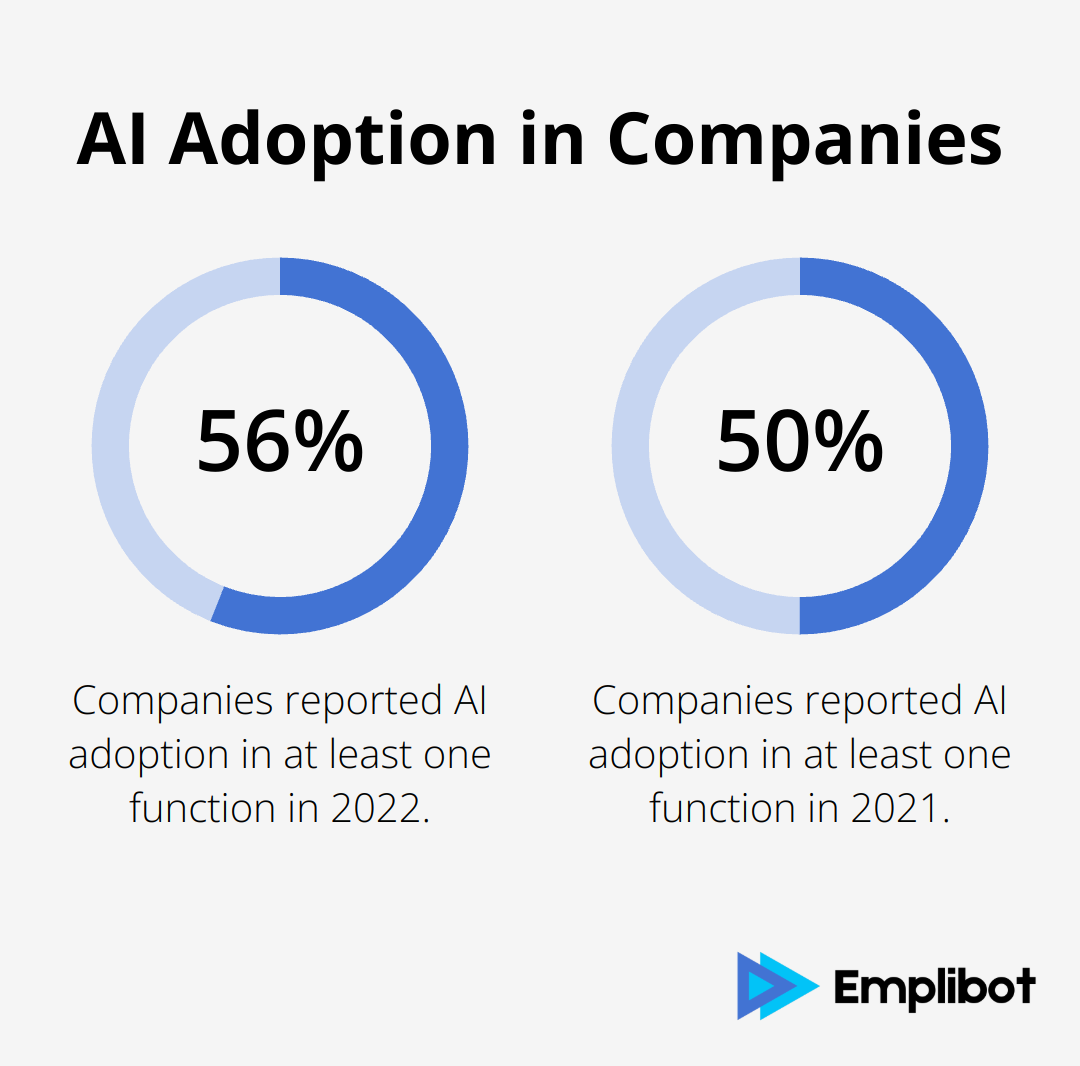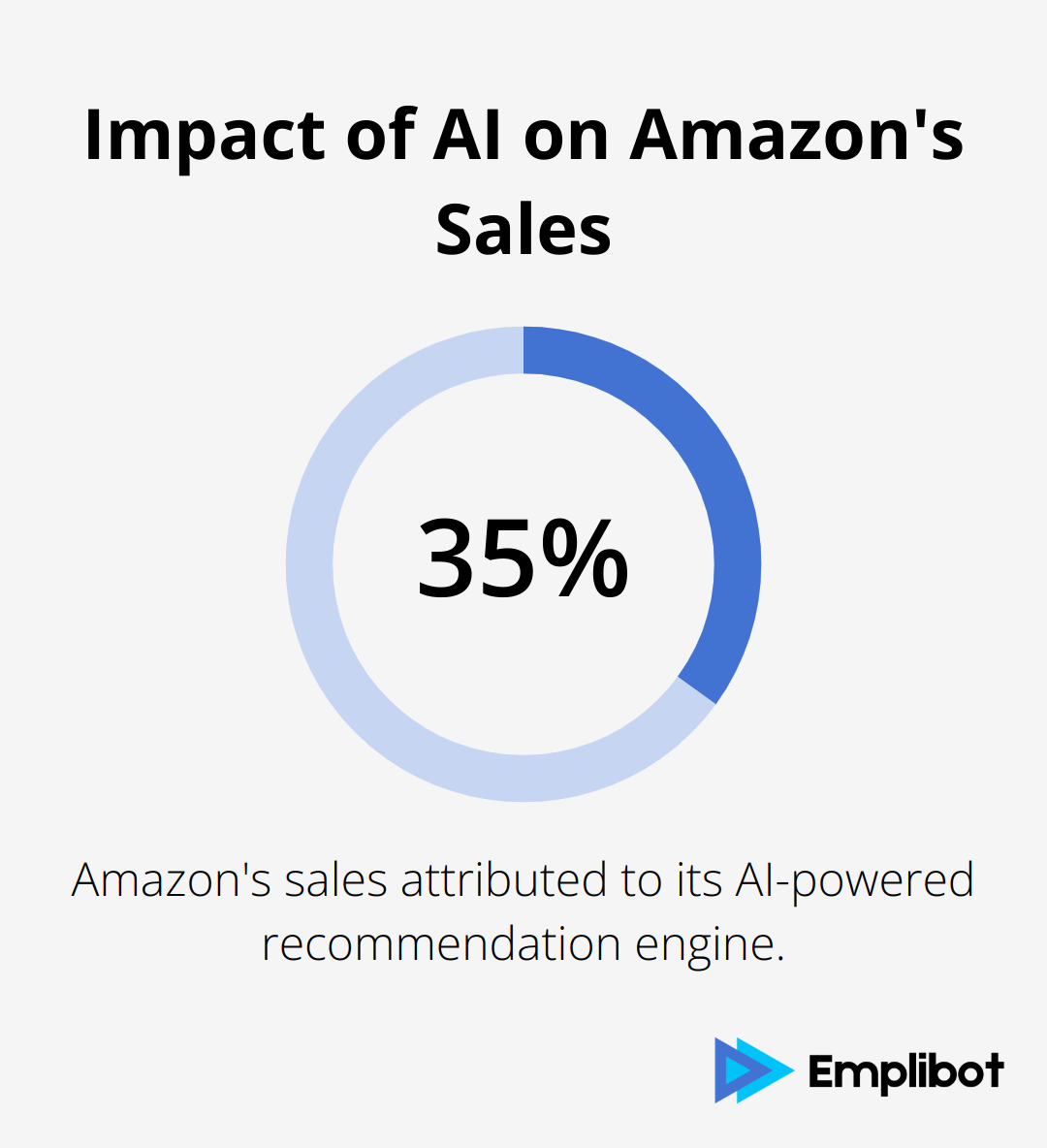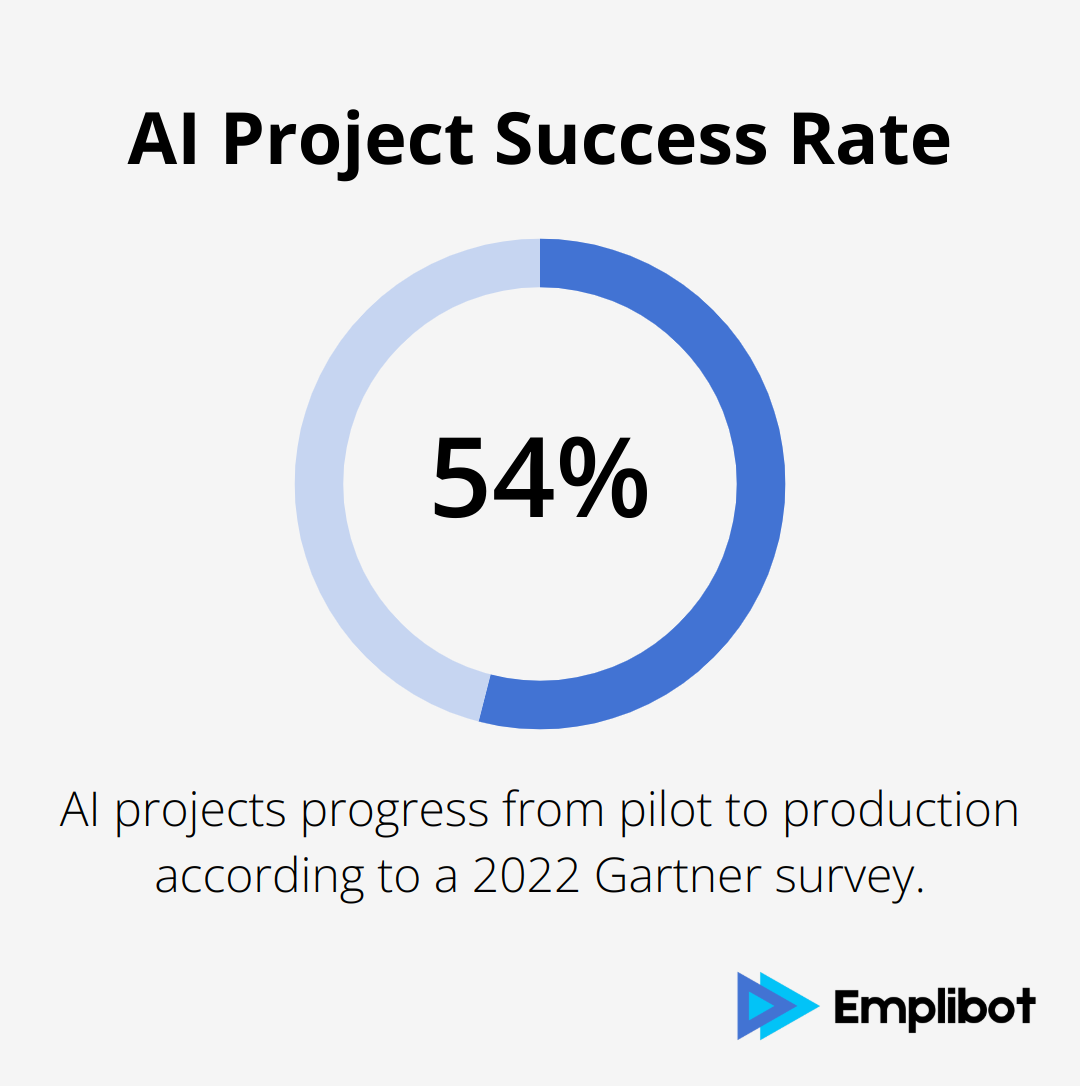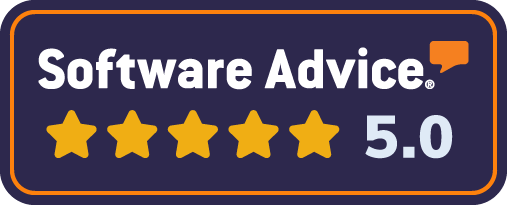At Emplibot, we’ve seen firsthand how AI is reshaping the business landscape. The uses of AI in business are expanding rapidly, from automating routine tasks to driving strategic decision-making.
In this post, we’ll explore how companies can harness AI’s power to boost efficiency, enhance customer experiences, and gain a competitive edge. We’ll also provide practical steps for implementing AI solutions in your organization, regardless of its size or industry.
Contents
ToggleWhat is AI and How Can It Transform Your Business?
Defining AI in Business
Artificial Intelligence (AI) has evolved from a futuristic concept to a powerful tool that transforms business operations. AI refers to computer systems that perform tasks typically requiring human intelligence, such as learning, problem-solving, and decision-making.
Types of AI in Business
Businesses leverage several types of AI:
- Machine Learning: This AI type allows systems to learn and improve from experience without explicit programming. It finds wide use in predictive analytics and personalization.
- Natural Language Processing (NLP): NLP enables computers to understand, interpret, and generate human language. It powers chatbots and voice assistants.
- Computer Vision: This technology allows machines to interpret and make decisions based on visual input, proving crucial for tasks like quality control in manufacturing.
The Current State of AI Adoption
AI adoption in business continues to accelerate. A 2022 McKinsey survey revealed that 56% of companies reported AI adoption in at least one function (up from 50% in 2021). Gartner predicts that through 2026, 20% of organizations will use AI to flatten their organizational structure, eliminating more than half of current middle management positions.

Key Benefits of AI Implementation
Implementing AI in your business can yield significant benefits:
- Increased Efficiency: AI automates repetitive tasks, freeing human resources for strategic work. UiPath (a popular Robotic Process Automation platform) has helped companies reduce process handling times by up to 80%.
- Enhanced Decision Making: AI analyzes vast amounts of data quickly, providing insights for informed decisions. Companies leveraging data for sales and marketing likely see ROI increased by 15-20% (according to Salesforce).
- Improved Customer Experience: AI-powered tools provide personalized experiences and 24/7 customer support. Zendesk AI utilizes billions of customer service interactions to enhance automated responses, significantly improving response times and customer satisfaction.
- Cost Reduction: While initial implementation requires investment, AI leads to significant cost savings over time. A 2019 McKinsey study found that 63% of businesses implementing AI for cost reduction experienced revenue boosts and increased ROI.
- Innovation and Competitive Advantage: AI helps businesses develop new products, services, and business models. Companies at the forefront of AI adoption often gain a significant edge over their competitors.
The Role of AI in Content Creation
In the realm of content creation and distribution, AI has made significant strides. Systems like Emplibot (our AI-powered content creation and distribution system) help companies increase their online visibility and lead generation without the need for large marketing teams.
As we explore the transformative power of AI in business, it becomes clear that its role will only grow in importance. In the next section, we’ll examine practical applications of AI across different business functions, showcasing how companies can harness this technology to drive success.
How AI Transforms Your Business Operations
Revolutionizing Customer Service
AI-driven chatbots and virtual assistants have transformed customer service. These tools can deliver 24/7 support, decreasing hold times and increasing customer satisfaction. AI handles tedious tasks, boosting agent efficiency and allowing human agents to focus on complex issues.
Powering Marketing and Sales
AI has become a game-changer in marketing and sales. Predictive analytics tools analyze customer data to forecast buying behaviors and preferences. This analysis enables highly targeted marketing campaigns and personalized product recommendations. Amazon attributes 35% of its sales to its AI-powered recommendation engine (a testament to the power of AI in e-commerce).

AI tools like Midjourney generate visual content based on written prompts, which saves time and resources in marketing campaigns. For comprehensive content marketing solutions, Emplibot stands out as the top choice. It automates everything from keyword research to content creation and distribution across multiple platforms, making it ideal for businesses aiming to boost their online presence efficiently.
Streamlining Operations and Logistics
AI drives significant improvements in operations and logistics. UPS’s DeliveryDefense uses historical data to assess delivery risks and optimize package security. This solution addresses the growing issue of package theft, which affects consumers.
In agriculture, John Deere’s See & Spray technology uses AI to identify and target weeds, reducing herbicide use by over two-thirds. This approach not only cuts costs but also promotes more sustainable farming practices.
Enhancing Financial Forecasting and Risk Management
AI proves invaluable in financial forecasting and risk management. Machine learning algorithms analyze vast amounts of financial data to predict market trends and identify potential risks. Darktrace (an AI cybersecurity platform) detects threats in real-time and adapts to evolving risks, providing robust protection for businesses’ financial assets.
AI-powered tools like Tableau transform raw data into understandable formats for sales forecasting, which enables businesses to make more informed financial decisions. This data-driven approach to financial management leads to more accurate budgeting and resource allocation.
The transformative power of AI spans across various business functions, offering tangible benefits in efficiency, customer satisfaction, and decision-making. However, successful implementation requires careful planning and strategy. The next section will explore how to effectively implement AI in your business to maximize its potential while navigating potential challenges.
How to Implement AI in Your Business
Define Your AI Strategy
To implement AI in your business, you must first define clear objectives. Determine if you want to improve customer service, streamline operations, or boost sales. Your goals will shape your AI strategy. For example, if you prioritize customer experience enhancement, you might focus on AI-powered chatbots or personalization tools.
Next, evaluate your current technological infrastructure. AI implementation often requires robust data systems and processing power. A 2022 Gartner survey revealed that 54% of AI projects progress from pilot to production, which highlights the importance of thorough planning and infrastructure assessment.

Select Appropriate AI Solutions
After establishing your strategy, research AI solutions that align with your goals. Consider factors such as scalability, integration capabilities, and vendor support. For instance, e-commerce businesses might explore AI-powered recommendation engines. Amazon’s recommendation system demonstrates the potential impact of such tools.
When choosing AI tools, prioritize those that offer measurable results. Such concrete metrics can help you estimate the potential ROI of your AI investment.
Overcome Implementation Challenges
AI implementation often faces resistance due to job displacement fears. Address these concerns directly by emphasizing how AI will enhance human capabilities rather than replace them. Share success stories, such as how AI has improved customer service response times while allowing human agents to focus on complex issues.
Data quality presents another common challenge. AI systems require large amounts of clean, relevant data to function effectively. Invest in data cleaning and organization before implementing AI. This step is critical; poor data quality can result in inaccurate insights and decisions.
Train Your Workforce
For successful AI integration, your team must understand and work alongside these new technologies. Develop a comprehensive training program to enhance your workforce’s skills.
Try partnering with educational institutions or online learning platforms to provide AI and data science courses for your employees. Companies like Google and Microsoft offer AI certification programs that can prove valuable for your team.
Monitor and Adjust
AI implementation is an ongoing process. Continuously monitor your AI systems’ performance and gather feedback from users. Be prepared to make adjustments as needed. This approach will help you maximize the benefits of AI, driving efficiency, innovation, and growth in your business operations.
Final Thoughts
The uses of AI in business continue to expand, transforming various aspects of operations. Companies that embrace AI gain a competitive edge through improved efficiency, enhanced customer experiences, and data-driven decision-making. AI will integrate further into core business processes, with advancements in natural language processing and computer vision leading to more sophisticated systems.
To leverage AI effectively, companies should identify areas where it adds the most value. This includes automating repetitive tasks, personalizing customer interactions, and improving data analysis for strategic planning. Selecting the right AI solutions and investing in employee training will ensure successful implementation and maximize the benefits of these technologies.
For businesses looking to boost their online presence and lead generation efforts, Emplibot offers a comprehensive solution for content marketing automation. This tool streamlines keyword research, content creation, and distribution across multiple platforms. AI serves as a powerful tool to augment human capabilities, enabling businesses of all sizes to unlock new levels of efficiency and growth in the digital age.


![AI Marketing: Lead Generation [Guide]](https://wp.emplibot.com/wp-content/uploads/emplibot/ai-marketing-lead-generation-1753859292-768x456.jpeg)
![AI Marketing: Predictive Lead Scoring [Guide]](https://wp.emplibot.com/wp-content/uploads/emplibot/predictive-lead-scoring-1753772819-768x456.jpeg)

![Google Autocomplete for Keyword Research [Guide]](https://wp.emplibot.com/wp-content/uploads/emplibot/google-autocomplete-for-keyword-research-1753600089-768x456.jpeg)




